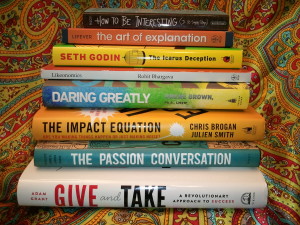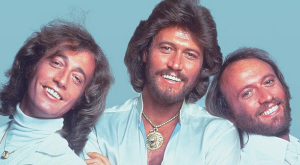 Watching the Academy Awards I was struck by the speeches of the winners. I could sense the struggles everyone went through; the rejection, the under-appreciation, the menial jobs, the ramen noodle diets, all in the pursuit of achieving their life-long dreams.
Watching the Academy Awards I was struck by the speeches of the winners. I could sense the struggles everyone went through; the rejection, the under-appreciation, the menial jobs, the ramen noodle diets, all in the pursuit of achieving their life-long dreams.
4 Lessons from the Oscars on Achieving Life-Long Dreams
4 Lessons from the Olympics
 When the world’s best compete against each other there’s so much emotion, drama, and heart that comes out, that’s why I love watching athletes perform. You can’t help but get drawn in. It’s what makes the Olympics so special.
When the world’s best compete against each other there’s so much emotion, drama, and heart that comes out, that’s why I love watching athletes perform. You can’t help but get drawn in. It’s what makes the Olympics so special.Every Day is Valentine’s Day
 Valentine’s Day used to bum me out, only because I was perpetually single. I used to be jealous of everyone else getting to spend that special day with their sweetheart. I thought one day, I’m going to celebrate it.
Valentine’s Day used to bum me out, only because I was perpetually single. I used to be jealous of everyone else getting to spend that special day with their sweetheart. I thought one day, I’m going to celebrate it.
I’m on Vacation or How to Reduce Stress
 There are days that are filled with challenges and you can’t wait to get home. We’ve all been there. But when those days turn into weeks, and even months, something’s got to give. A number of years ago, at one of my former jobs, I was going through some pretty stressful days at work. The stress took its toll on me; I was cranky, had a negative attitude, and it was messing with my health (physically, mentally, and spiritually). My wife could see the effect work was having on me, so she came up with a plan that completely changed everything.
There are days that are filled with challenges and you can’t wait to get home. We’ve all been there. But when those days turn into weeks, and even months, something’s got to give. A number of years ago, at one of my former jobs, I was going through some pretty stressful days at work. The stress took its toll on me; I was cranky, had a negative attitude, and it was messing with my health (physically, mentally, and spiritually). My wife could see the effect work was having on me, so she came up with a plan that completely changed everything.
My 3 Words for 2014
 I recently went to a creative space in Milwaukee called Translator. Every Tuesday and Thursday morning, they host what they call a Lab (the rest of the time Translator is a digital marketing agency). If you’re in the area you should stop by. People get together and share ideas, get advice, and help others with their problems. It’s a great place for business and creative types to meet and collaborate in a positive environment that fosters creativity. I don’t go nearly often enough.
I recently went to a creative space in Milwaukee called Translator. Every Tuesday and Thursday morning, they host what they call a Lab (the rest of the time Translator is a digital marketing agency). If you’re in the area you should stop by. People get together and share ideas, get advice, and help others with their problems. It’s a great place for business and creative types to meet and collaborate in a positive environment that fosters creativity. I don’t go nearly often enough.
What Christmas Means to Me
 When I was in middle school right after the Christmas break, my 7th grade English teacher, Ms. Mavrogenis, had us write a paper about how we spent our Christmas. I immediately went to work like the rest of my class and started jotting down what I got my sister, mom, and dad for Christmas, and how we always went out a little extra for mom because December 25th was also her birthday. Growing up we heard stories of how people would give mom a combined Christmas/Birthday gift and we always made sure there were separate presents for her birthday so she could enjoy both, even though they were on the same day.
When I was in middle school right after the Christmas break, my 7th grade English teacher, Ms. Mavrogenis, had us write a paper about how we spent our Christmas. I immediately went to work like the rest of my class and started jotting down what I got my sister, mom, and dad for Christmas, and how we always went out a little extra for mom because December 25th was also her birthday. Growing up we heard stories of how people would give mom a combined Christmas/Birthday gift and we always made sure there were separate presents for her birthday so she could enjoy both, even though they were on the same day.
My Favorite Books of 2013
 I’m an avid reader and am constantly looking for good authors to inspire me, motivate me, and fire up my mind. This year I discovered some truly amazing ones that did that and so much more. These books are filled with awesome information and most definitely had an impact on my life. I encourage you to check them out and if you are looking for a gift, you won’t go wrong with any of these.
I’m an avid reader and am constantly looking for good authors to inspire me, motivate me, and fire up my mind. This year I discovered some truly amazing ones that did that and so much more. These books are filled with awesome information and most definitely had an impact on my life. I encourage you to check them out and if you are looking for a gift, you won’t go wrong with any of these.
The Lesson I Learned from Nelson Mandela
 With Nelson Mandela’s passing, at the age of 95, the world lost a great inspiration. You can see how many lives he touched by the outpouring of testimonials and loving tributes. I feel a call to share how he touched mine as well.
With Nelson Mandela’s passing, at the age of 95, the world lost a great inspiration. You can see how many lives he touched by the outpouring of testimonials and loving tributes. I feel a call to share how he touched mine as well.
5 Ways I Show Gratitude
 Earlier this year, my wife and I went to a benefit sale at a local church. As things were winding down, one of the volunteers said she had to leave which prompted the pastor to raise his voice and lay a guilt trip on her. Even after she said she had to study for an exam on Monday, he told her that volunteers were supposed to be there for the entire time, and that included clean up.
Earlier this year, my wife and I went to a benefit sale at a local church. As things were winding down, one of the volunteers said she had to leave which prompted the pastor to raise his voice and lay a guilt trip on her. Even after she said she had to study for an exam on Monday, he told her that volunteers were supposed to be there for the entire time, and that included clean up.
4 Business Lessons from the Bee Gees
For Christmas in 1979 I received the Bee Gees Greatest Hits, which was the first album I ever owned (thanks Aunt Susie and Uncle Rick!). I spent the rest of my Christmas vacation and much of 1980, sitting on the living room floor crossed legged in front of the stereo with my headphones on. I listened to that album for hours. I’ve always been a fan of the Bee Gees, even when it wasn’t cool to be one.

Follow Me!